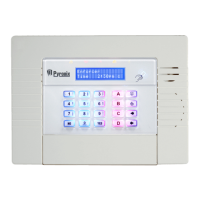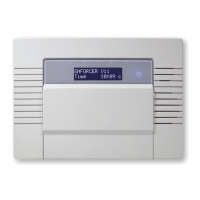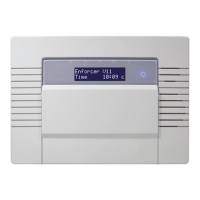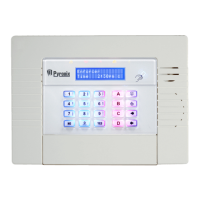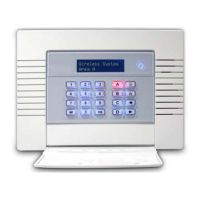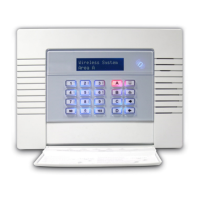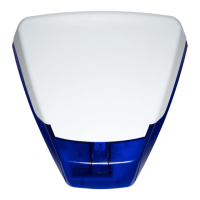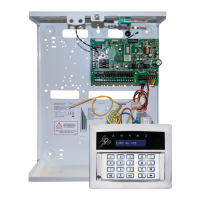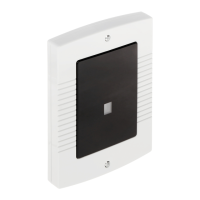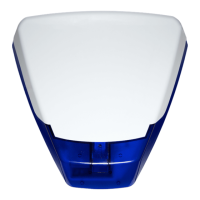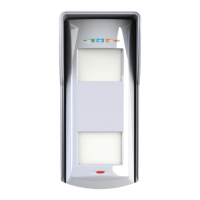Enforcer: Programming Manual
Page: 36
Appendix C. Timers
Timer Function Range
Entry Time Entry time for each area. (if programmed as the input type ‘Final
Exit’)
0 – 255 seconds
Exit Time Exit time for each area. 0 – 255 seconds
APP Exit Time Exit time when set via the HomeControl+ app 0 – 199 seconds
Siren Time Cut off time for external sounder. Separate for each area. 2 – 15 minutes
Siren Delay
Delay after intruder alarm before siren live. Not valid within 3 minutes of
final arm or after entry time started.
0 – 20 minutes
Confirm Time Time period during which a second activation must occur to qualify as
‘sequentially confirmed’ alarm. NOTE: BS8243 specifies a confirm
time between 30 and 60 minutes. This also can be used in
conjunction with testing an omit signal.
1 – 99 minutes
HU Confirm
Time
Time period during which a second activation on a hold alarm must
occur to qualify as ‘sequentially confirmed’ alarm. NOTE: BS8243
specifies a confirm time between 8 and 20 hours. This also can
be used in conjunction with testing an omit signal.
8 – 20 hours
Strobe Time Time strobe output remains live after siren time ends.
‘99’ means endless.
0 – 99 minutes
Re-Arm No. Number of times system re-arms after bell time ends.
NOTE: Re-arm number applies to each area, and does not
affect emergency alarms. ‘9’ means always re-arm.
0 – 9
AC Signal
Delay
Time delay before mains failure or technical alarm notified. NOTE:
Setting ‘250’ = never alarms. System change-over to battery
supply and associated visual alert indication is always
immediate.
Some ATE imposes a randomised delay in notifying a mains fail. This
should be taken into account when setting this timer.
0 – 250 minutes
Settle Time between final exit input closing, and system setting.
0 - 255 seconds
Double Knock Length of filter period applied to inputs with ‘Double Knock’ attribute.
0 – 75 seconds
Pre-Alarm Delays ‘Intruder’ output signals if entry time has started. Pre-alarm
time must be set for at least 30 seconds to comply with
PD6662
0 – 255 seconds
Comm Fault
Delay
Duration of communication fault before ‘Comms Fault’ alarm
triggered. NOTE: In the case of devices connected via the ATE pins,
this time is additional to that already applied by the ATE.
0 – 250 seconds
Set Fail Time after which ‘Set Fail’ operation will be invoked if exit procedure
not completed.
0 – 255 seconds
Fire Siren Time Cut off time for fire alarm. ‘99’ means endless.
1 – 99 minutes
Set Fail
Warning
Time for which a set fail warning will be present.
0 – 99 seconds
Input NAT
Days
NAT stands for Non-Activity Timer. This is used in conjunction with the
input attribute ‘Non Activity Input’, and will monitor the chosen input for
the selected number of days. At expiration of timer, and if the input has
not opened within that time, then this will be stored in the panel log. Non
Activity fault and there will be an output activated if programmed to it.
Send SMS message if “Special Log” is on.
0-14 days
Input NAT
Hours
NAT stands for Non-Activity Timer. This is used in conjunction with the
input attribute ‘Non Activity Input’, and will monitor the chosen input for
the selected number of hours. At expiration of timer, and if the input has
not opened within that time, then this will be stored in the panel log. Non
Activity fault and there will be an output activated if programmed to it.
Send SMS message if “Special Log” is on.
00-23 hours
Wireless
Supervision
Time
This option is only applicable if wireless devices are installed. It is the
time window before a wireless supervision fault will be signalled. For
example: if the time is set for 2 hours, then any device that doesn’t
communicate with the wireless expander within that period will cause
0-99 hours
